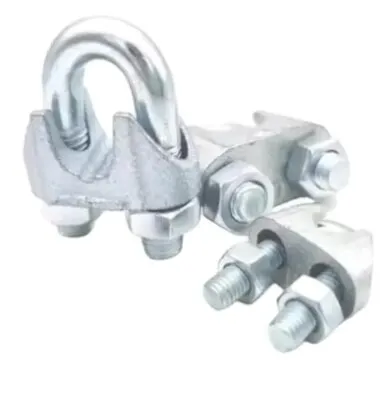Jan . 06, 2025 11:19 Back to list
anchor bolt types
Anchor bolts are a fundamental component in construction and engineering, offering a secure means of attaching structural elements to concrete surfaces. Understanding the various types of anchor bolts is crucial for selecting the right option for specific applications, thereby ensuring safety and structural integrity.

One of the most common types is the cast-in-place anchor bolt. This type is set into the wet concrete during the pouring process, making it integral to the structure once the concrete cures. Cast-in-place bolts are generally used in large construction projects, such as buildings and bridges, where the position and alignment of the bolts are predetermined. The advantage of these bolts lies in their superior load-bearing capabilities and resistance to shear forces, making them ideal for supporting heavy loads.
Expansion anchor bolts, often referred to as mechanical anchors, are another popular choice, particularly in retrofit projects where drilling into existing concrete structures is necessary. These bolts work by expanding against the walls of the drilled hole as the bolt is tightened. The expansion creates a powerful grip, providing excellent strength. These are commonly used in applications where vibrations or dynamic loads are present, such as machinery installation or seismic reinforcements, due to their high resistance to loosening under stress.

Epoxy or chemical anchor bolts offer an alternative for situations demanding high precision and greater load distribution. By using a resin-based adhesive to bond the bolt to the concrete, these anchors achieve a higher tensile load capacity and are favored in environments where safety is paramount, such as nuclear facilities or heavy industrial settings. The versatility of epoxy anchors, accommodating various bolt sizes and styles, provides engineers with flexible solutions for complex structural challenges.
anchor bolt types
Sleeve anchor bolts present a unique design, featuring a metal sleeve over the bolt shank that expands as the nut is tightened. This type of anchor provides strong holding power in hollow materials or soft masonry, making them perfect for lightweight structural applications. Their ease of installation and reliable performance make sleeve anchors suitable for both professional construction tasks and DIY projects.
For lighter-duty applications, toggle bolts serve as an efficient solution. Typically used in dry walling and other non-structural applications, these bolts include spring-loaded wings that expand behind the substrate for support. Toggle bolts are particularly useful in scenarios where access to the back of the material is limited and allow for quick, secure installations.
Choosing the appropriate anchor bolt type hinges on understanding the specific requirements of the project, including load types, environmental conditions, and the nature of the supporting materials. Consulting with structural engineers and utilizing manufacturer guidelines ensures the selection of the most effective anchor bolt, enhancing the safety and durability of the construction project.
Incorporating these aspects into the purchasing decision not only mitigates risks but also extends the longevity and efficacy of the structural installations. As construction demands continue to evolve, ongoing advancements in anchor bolt technology promise even greater innovations in securing the frameworks of tomorrow’s infrastructure.


